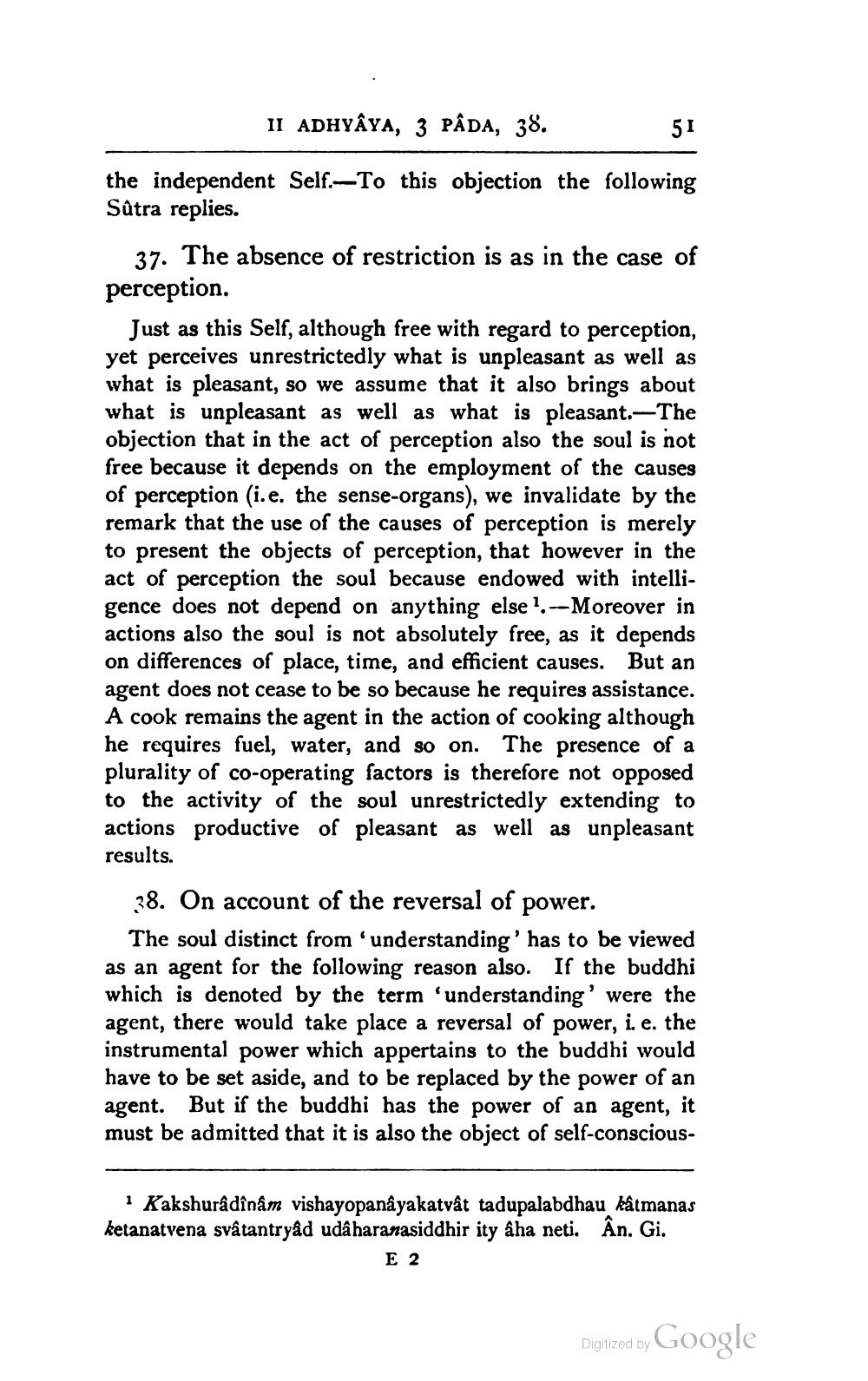________________
II ADHYAYA, 3 PÂDA, 38.
the independent Self.-To this objection the following Sûtra replies.
51
37. The absence of restriction is as in the case of perception.
Just as this Self, although free with regard to perception, yet perceives unrestrictedly what is unpleasant as well as what is pleasant, so we assume that it also brings about what is unpleasant as well as what is pleasant.-The objection that in the act of perception also the soul is not free because it depends on the employment of the causes of perception (i.e. the sense-organs), we invalidate by the remark that the use of the causes of perception is merely to present the objects of perception, that however in the act of perception the soul because endowed with intelligence does not depend on anything else 1.--Moreover in actions also the soul is not absolutely free, as it depends on differences of place, time, and efficient causes. But an agent does not cease to be so because he requires assistance. A cook remains the agent in the action of cooking although he requires fuel, water, and so on. The presence of a plurality of co-operating factors is therefore not opposed to the activity of the soul unrestrictedly extending to actions productive of pleasant as well as unpleasant results.
38. On account of the reversal of power.
The soul distinct from 'understanding' has to be viewed as an agent for the following reason also. If the buddhi which is denoted by the term 'understanding' were the agent, there would take place a reversal of power, i. e. the instrumental power which appertains to the buddhi would have to be set aside, and to be replaced by the power of an agent. But if the buddhi has the power of an agent, it must be admitted that it is also the object of self-conscious
1 Kakshurâdînâm vishayopanâyakatvât tadupalabdhau kâtmanas ketanatvena svâtantryâd udâharanasiddhir ity âha neti. Ân. Gi.
E 2
Digitized by Google




